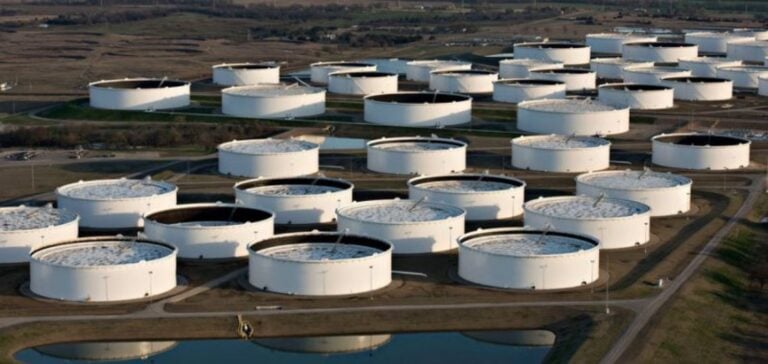The latest data released by the Energy Information Administration (EIA) indicate that commercial crude oil inventories in the United States rose by 800,000 barrels for the week ending September 6, 2024.
This was below analysts’ forecasts of a 1.05 million-barrel increase, according to a Bloomberg consensus.
This discrepancy between expectations and actual figures could influence the market’s perception of the current state of oil supply and demand, as well as supply strategies.
Rising inventories: an ambiguous signal for the market
The increase in crude oil inventories, albeit moderate, comes after several weeks marked by significant movements in oil prices against a backdrop of concerns about global demand.
Market players were expecting a more significant rise, due to conflicting signals from various economic indicators.
The lower-than-expected rise of 800,000 barrels can be interpreted in several ways.
On the one hand, it may suggest stronger-than-expected consumption or more limited supply.
On the other hand, it may reflect a certain caution on the part of US refiners in managing their inventories in the face of uncertain global demand.
Impact on oil prices and supply strategy
The figure published by the EIA could have an impact on oil prices in the short term, particularly if investors revise their expectations of oversupply.
A smaller-than-expected rise in inventories is generally seen as a supportive factor for prices, as it indicates potentially tighter supply.
However, the price reaction will also depend on other factors, such as global economic data and OPEC+ production decisions.
In recent weeks, the oil market has been under pressure due to downward revisions to global demand forecasts for 2024 and 2025, announced by OPEC+.
This has led to fears of a slowdown in consumption, particularly in Asia, a key market for crude oil.
The publication of the EIA data is therefore being closely watched by traders and analysts to adjust their positions.
While demand trends remain uncertain, a smaller-than-expected rise in inventories could offer a respite for prices, at least temporarily.
Economic and political stakes for the United States and the global market
In economic and political terms, these figures are also an indicator of US energy policy and its impact on the global market.
As the world’s leading crude oil producer, the United States plays a crucial role in balancing global supply.
The EIA’s publication comes against a backdrop of geopolitical tensions and production fluctuations.
Russia and certain OPEC+ members have recently reinforced their production discipline, aimed at stabilizing prices within a range acceptable to their economies.
In addition, production decisions by the United States may also affect world market balances.
Cautious inventory management by US refiners could indicate an anticipation of downward pressure on prices, or an economic slowdown.
This complex dynamic between production levels, reserves and demand, particularly in Asia and Europe, will continue to guide supply decisions.
External factors influencing market trends
Beyond inventory data, other external factors are also influencing the oil market.
For example, Tropical Storm Francine in the Gulf of Mexico could disrupt oil production and distribution in the region, creating short-term supply risks.
Geopolitical tensions, particularly in Eastern Europe and the Middle East, could also affect supply prospects.
Recent decisions by OPEC and its allies to delay the initially planned production increase also show that producers remain vigilant in the face of market volatility.
This caution reflects a desire to maintain prices at a level that will support their budgets without curbing demand.
However, any unexpected disruption could quickly reverse the current market dynamic.
The current situation shows just how fragile and reactive the oil market remains to a multitude of economic and geopolitical factors.
While US crude oil inventory data continues to play a crucial role, the outlook remains uncertain and subject to rapid change.






















